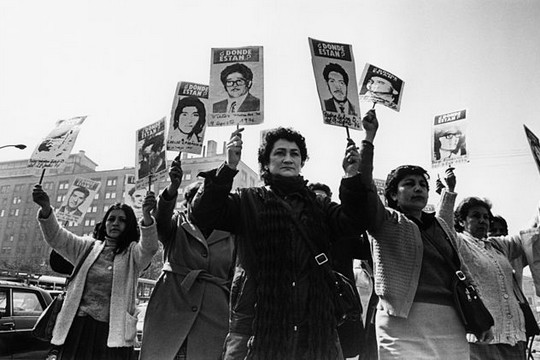Family members of a Chilean man disappeared and murdered by the Latin American dictator want Israel to open a criminal investigation into officials who cooperated with the murderous regime.
By John Brown* (translated by Tal Haran)

Two Israeli women who immigrated from Chile are taking Israel’s attorney general to court, demanding that he open a criminal investigation into Israeli officials who were involved in arms deals with the regime of Augosto Pinochet, for aiding and abetting crimes against humanity. Lily Traubman and her daughter Tamara Santos Traubman moved to Israel in the 1970s after being persecuted by the Pinochet regime, which also disappeared Lily’s father.
The suit, filed by Attorney Eitay Mack, seeks to compel Attorney General Avichai Mendelbit to open criminal investigations into the involvement of personnel from the Israeli ministries of Defense and Foreign Affairs, the Israeli army, and civilian arms traders.
Pinochet took over Chile on September 11, 1973, overthrowing its elected government and its Marxist prime minister, Salvador Allende. The next day began purges of anyone suspected of having leftist leanings, throughout Chile but particularly in the school system, which lasted until 1990. During the first years of the new regime, around 3,000 persons were abducted and murdered and over 35,000 people were tortured by DINA, the Chilean secret services. The regime never admitted these crimes. Israel was reportedly involved in training the DINA.
One of the victims was Ernesto Traubman, Lily Traubman’s father and Tamara’s grandfather, who was abducted at the outbreak of the coup, tortured to death in the Chilean Ministry of Defense in Santiago, and went missing for about 20 years, until his remains were located and given to the family.
For the past several years the Traubman family has been struggling to expose the connections between Israel and the Chilean regime at that time. The two women filed freedom of information requests in 2015 seeking to gain access to documents related to the arms trade and Israeli political support of that regime. Like the Israeli collaboration with genocide in Guatemala and the Argentinian dictatorship in those years, there is an abundance of publicly available evidence of the ties between Israel and Pinochet’s Chile.
For example, according to a cable from the U.S. Embassy in Chile sent April 24, 1980, which was attached to the women’s freedom of information request, Israel was a major arms supplier to the Pinochet regime. According to a cable quoting the American undersecretary of state from April 10, 1984, Israel was one of the main arms suppliers of the Junta, which made it difficult to enforce effective sanctions against Chile, considering that American sanctions did not apply to Israel.

Hugo Harvey’s 2012 book on the covert relations between Israel and Chile in those years also contains revealing evidence from the Chilean side of the arms trade between the two states. Israel, however, still refuses to disclose evidence from the Israeli side, including tens of thousands of documents. In response to the Traubmans’ freedom of information request, the Israeli Ministry of Defense claimed that the extent of such documentation is so vast that it is unlikely to be able to review them all in order to decide what can be exposed. Although the court rejected the state’s reasons for refusal, to date the State of Israel continues to drag its feet and has not released the relevant documents.
The current appeal to the attorney general is one of several of its kind in Israel, and the first in the Chilean context. The arms traders and Ministry of Defense personnel in charge of such shadowy exports and training, seemingly complicit in war crimes the world over (nowadays in South Sudan and in Burma, earlier in Bosnia and throughout Latin America in the 1980s) are not being held accountable. Their deeds are whitewashed using arguments of state security and potential harm to Israel’s foreign relations, should the crimes ever be exposed.
There is no statute of limitations for crimes against humanity. Even if Israel does not consider them as such, an international court can exercise its authority in this regard. It would be fitting for the State of Israel to help supply the necessary evidence for such a case to proceed. In the case that the appeal to the government legal adviser does not result in a criminal investigation, the petitioners are considering turning to courts in Israel and in international fora.
*John Brown is the pseudonym of an Israeli academic and a blogger. This story first appeared in Hebrew on Local Call, where he is a blogger. Read it here.
